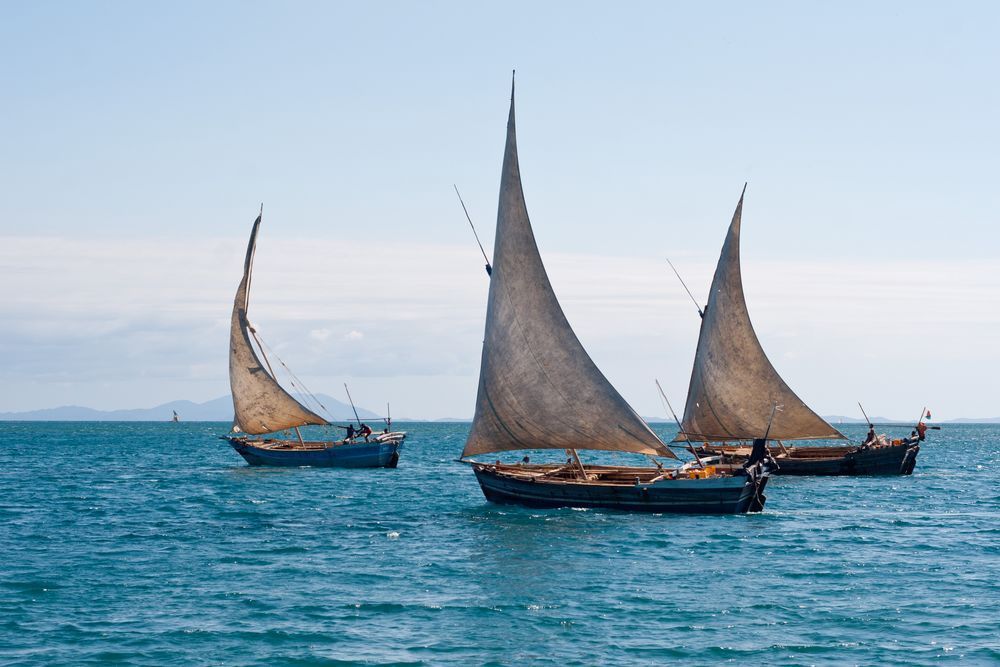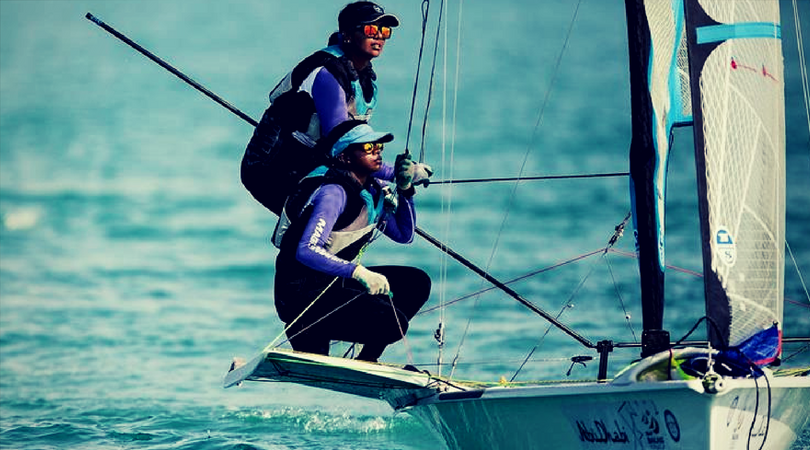Begin typing your search above and press return to search.
Featured
The importance of coaches in encouraging water sports

The demographics of India have always been blessed with a longer than average coastline on two sides of the country. Additionally, the vast network of water bodies within the inland itself ensures a geography that is quite tailor-made for water sport. Sadly, for the sports of the country, despite having a rich history of water sports in the country, the passion and culture has never translated into a medal winning one at the international level. The reasons for this are many. A lack of formal infrastructure and systematic encouragement can be chalked up as quite high on the list. Water sports, in general, sees a dearth of homegrown coaches leading to most of our athletes training abroad for the simple reason of availing world class methods. When one takes a look at how deeply connected Indian culture is to their rivers and other water bodies, it is disheartening to note our low success in the field. For a quick example, we need to only look at the festival of Onam- which is synonymous with Vallamkali or the Snake Boat Race. The two most famous races included in the ritual are the Aranmula Uttrattadhi Boat Race and the Nehru Trophy Boat Race. The latter traditionally takes place in the Punnamada Lake near Alappuzha, Kerala. Sports Authority of India later set up a regional rowing centre near the region. The article below focuses predominantly on Sailing, yet another water sport which has seen little success by Indians on an international level until recently. It was first published on TopLevel Sailing
The ability of a sailing club or sailing federation, or any organization to be in charge of their own coaching systems, and have them in a clear format that is both visible and accountable is a huge step forward for most organisations. This is based both on feedback from clients and the evidence that a great coach can make a good sailor perform at the top – equally an excellent sailor with an average coach will rarely be able to display their talents. This is one of the few aspects that sailing is inline with other sports – the team of sailor-coach has to have the right chemistry, talent, knowledge and structured approach in order for a sailor to perform at their best. The one thing for sure is that a good coach will accelerate the rate of progress of any young sailor on the way up, and be a real catalyst for pushing performance when the sailor is at the top.
Also read: Ace sailor Varsha Gautham alleges irregularities in Asian Games Selection Policy
The ability of a sailing club or sailing federation, or any organization to be in charge of their own coaching systems, and have them in a clear format that is both visible and accountable is a huge step forward for most organisations. This is based both on feedback from clients and the evidence that a great coach can make a good sailor perform at the top – equally an excellent sailor with an average coach will rarely be able to display their talents. This is one of the few aspects that sailing is inline with other sports – the team of sailor-coach has to have the right chemistry, talent, knowledge and structured approach in order for a sailor to perform at their best. The one thing for sure is that a good coach will accelerate the rate of progress of any young sailor on the way up, and be a real catalyst for pushing performance when the sailor is at the top.

Why is there a need to employ a trained coach?
The answer to this is simple. The good coach will accelerate the rate of learning by at least two or three times that of a non-supported sailor. When taken in this context the sailor needs to do 5 coach-supported regattas a year in order to gain the experience of a non-supported sailor doing ten to fifteen regattas to achieve the same progress. Equally a coach when engaged by a fully developed sailor near their peak, will ensure a stability and continued improvement which a non-supported else athlete could not hope to sustain. One of the most essential aspects of a coach-sailor relationship is continuity. If a business were to employ a manager, who works on a particular strategy, and see the manager make some progress over the first few months of their engagement, would the business then say that they will bring in another manager with a different strategy so that the workers can “cherry pick” the knowledge from both managers in order to decide which direction they want to work in? No, of course not, because by definition a strategy is a long term plan which is accountable, so the only reason to change the manager in business, or coach in sailing, is if the performance goals are not being achieved. This means that to effectively manage the coach-sailor relationship, a strategy must be in place where the federation or employer of the coach must be able to evaluate progress. Coaching and performance is a business, not a black art, so accountability is everything, exactly the same as in other sports. Because sailing is such a complex sport we can see more latitude is often required in terms of worse or better results than would be judged in a runner/coach relationship, but in sailing we are still accountable by results. This is often overlooked. The one rider to this is that the team (sailor/coach) must be supplied with the resources needed to achieve the process and performance goals. If this cannot be done, then the coach cannot be judged and the employer/federation must look to themselves for the reason of failure. Having established what a coach must do and how they are to be supported and assessed, we can now look at what effective coach skills are needed. As with any sport it is not necessarily a top sailor who will make the best coach. However it is a sport where competence and knowledge is needed in order to coach. The level of knowledge may be only to the level being coached, and that is adequate as the developing coach can pick up knowledge on their journey with the sailor in a building process which can be productive. The primary qualities needed in assessing a potential coach are: Enthusiast: Dedication to task: Communicator: Personal resolve: Sailing skill set: Energetic. We can add to this list, but these are essential qualities to assess when considering a coach for training, or when assessing a working coach.What is a coach?
They are not necessarily teachers, leaders, role models, friends, parents, motivators, enthusiasts, guides, mentors etc, which is too often the perception that an employer has when hiring a coach. Indeed many of those qualities are good to see in a coach, but the overall job is one of management, which involves excellent assessment and prioritization skills. These we teach during our coach courses in the form of the Toplevel “Coaching Process” . Our sailing coach courses range from basic club to Olympic levels. As the sailor progresses the style of coaching must revolve more around the talents of the sailor, which of necessity involves a different style than when the coach has to teach skills. Unorthodoxy in sailing and individual style is encouraged, as long as it is effective. As an extreme analogy, if we want an athlete to run from point A to point B, one athlete may use 105 strides to achieve the distance, and move their arms very little. Another athlete may use only 89 strides to do the same trip, and use a different arm/body action. If they are both top athletes they will be within a few hundredths of a second of each other. If you asked a third athlete with another style to copy the other styles, and in doing so change their own style, their performance would diminish by a huge margin. The person responsible for developing styles is usually the coach. When a coach can only teach one specific stride and body movement, they have to be very lucky for their methods to fit the athlete. Sailing being a much more complex sport means that we have to develop coaching techniques where in every department we can allow the athlete to develop their own style. A good, well trained coach will therefore be able to coach athletes and sailors of a wide variety of temperaments, strengths and weaknesses. A lesser coach will be confined by either their ineffectiveness or their ability only to relate to certain types of sailors. Bringing the best out of a sailor is the goal, and in order to do this we all have to understand both the end goal of each skill, and the way the combination of skills – technical, tactical, knowledge, fitness and coordination, break down into components and fit together. We also need to prioritize different training programs according to the shortfalls and needs of each sailor. Note: Toplevel Sailing run coach courses at every level from club to Olympic. We cover every aspect from communication skills right the way through technical, equipment and motivation, problem solving and psychology plus a lot more. We would be happy to talk to any organization or individual who is interested in engaging in a course, wherever you may be. Feel free to mail us and we can discuss your requirements.Also read: Ace sailor Varsha Gautham alleges irregularities in Asian Games Selection Policy
Next Story

